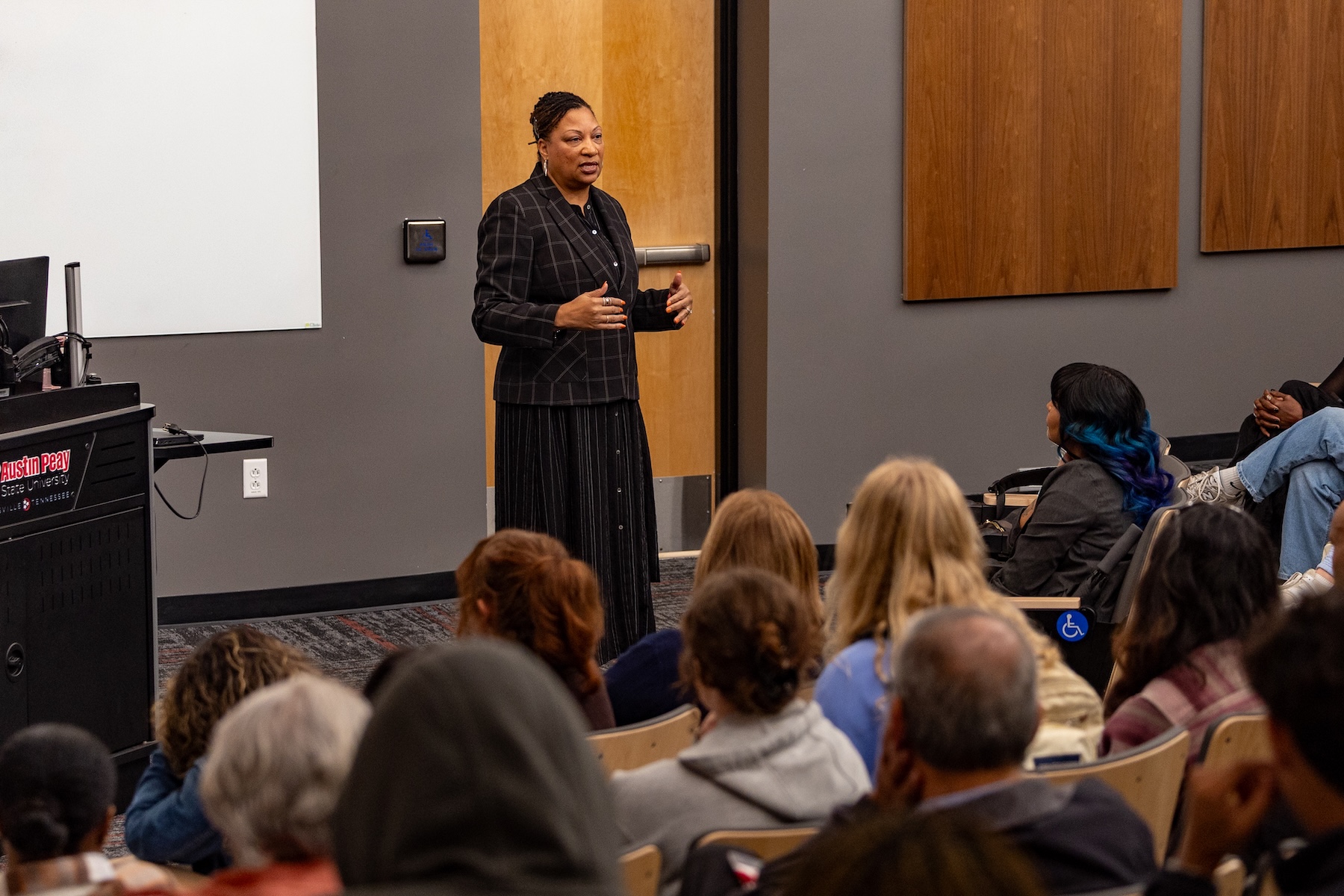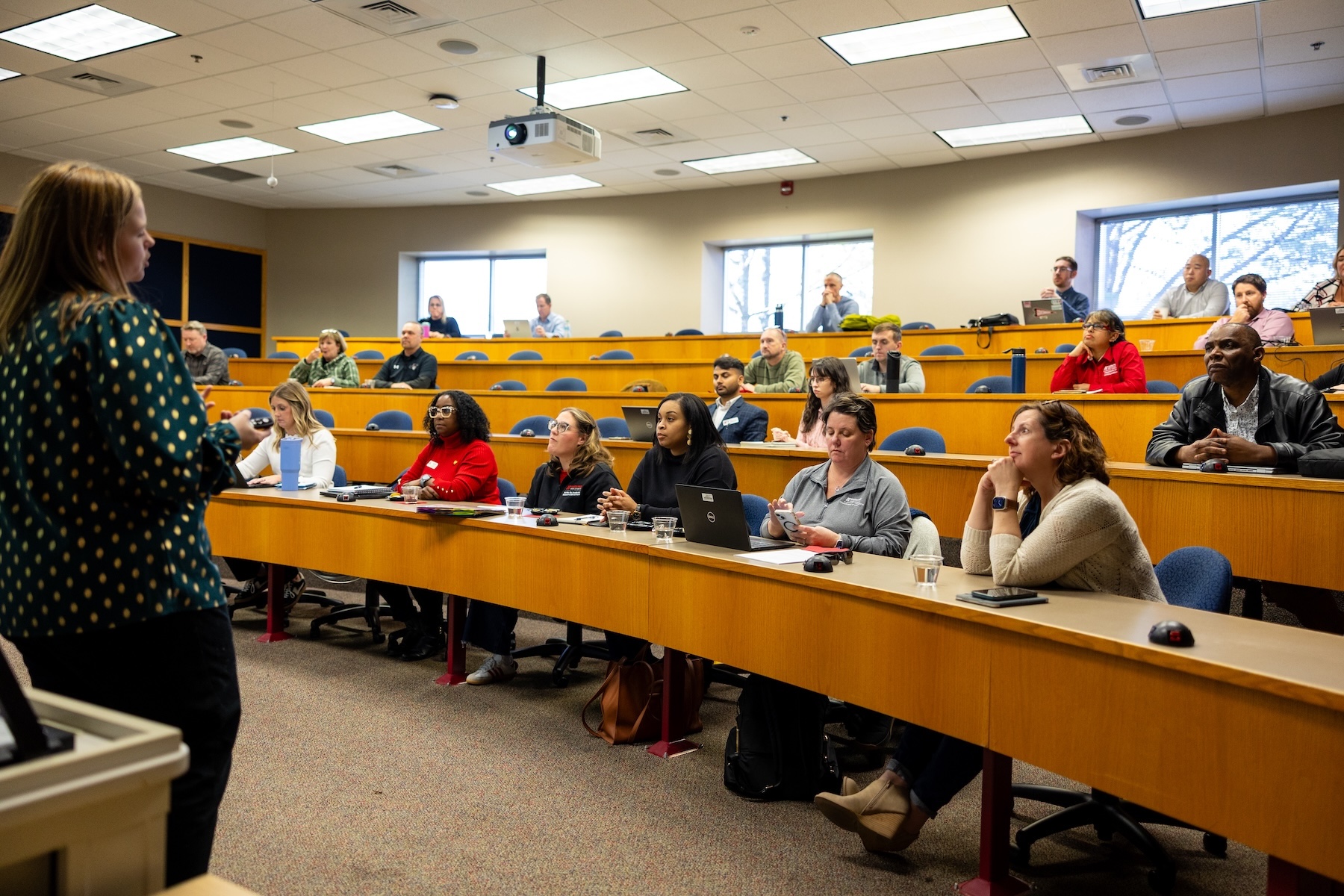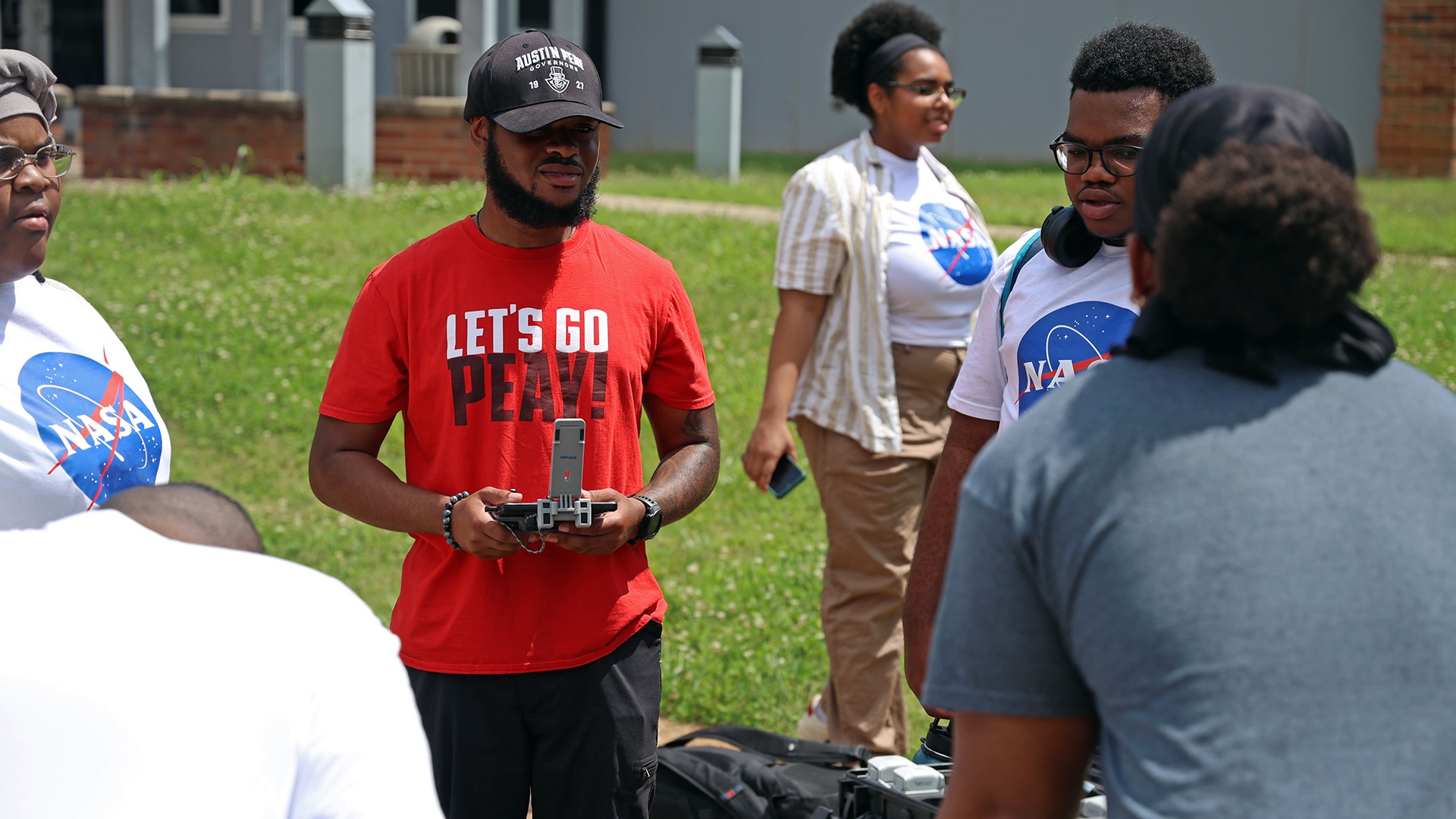November Science on Tap to explore ‘Cryptography and You’
(Posted on Tuesday, October 26, 2021)

Trust is a premium currency. Its value appreciates continuously until one breach causes it to deteriorate. The transfer of data is built on trust. Trust that protocols are upheld and that the systems protecting your information work properly.
Austin Peay State University professor Dr. Nicholas Coleman, an associate professor in the Department of Computer Science and Information Technology, will discuss “Cryptography and You” at the next Science on Tap at 5:30 p.m. Tuesday, Nov. 2, at Upstairs at Strawberry Alley Ale Works.
“I want people to have a basic understanding of how cryptography works,” Coleman said.
The value of cryptography is in everything we do, from browsing secure websites to online transactions. Whenever you swipe your debit card, a cryptographic protocol is being followed.
Confidentiality, integrity and authentication
The three big things cryptography provides are confidentiality, integrity and authentication. Confidentiality is maintained through encryption. Say you wanted to send a file securely to your boss. Encryption translates this plain text document, like a Word document, into ciphertext. This ciphertext is then translated back into plain text via a cryptographic key.
There are two types of keys: public and private keys. The public key can be accessed by everyone and is used to encrypt data. Your private key is accessible only by you and is used to decrypt data. This system provides confidentiality.
Integrity ensures that unauthorized users cannot change the data. This can be done in many ways, but a message authentication code confirms that a message received is from the person it says it’s from and the content of the message is intact.
Authentication is maintained, in part, through a system of hash functions. Hash functions map fixed outputs known as hash values to variably sized inputs. This is useful for verifying data. It also ensures that if there is ever a security break, only the hash values are at risk of exposure, not the imputed passwords. It is extremely difficult to take a hash value and figure out the original message.
Ransomware attacks
Dr. Coleman’s talk will also touch on ransomware attacks. Ransomware happens when someone gains access to your data, encrypts it and will only provide the private key necessary for decryption if you pay a certain amount, usually in the form of Bitcoin.
Malware is software designed to harm computers, or, in this case, gain access to sensitive data. It often finds its way on your computer by clicking a bad link or email.
“People are a lot easier to hack than computers,” Coleman said.
Ransomware attacks are a form of extortion. Bitcoin is often used by hackers because it is theoretically untraceable, but that isn’t true.
“Bitcoin is not 100% untraceable because you have to have an account with some system that manages your Bitcoin that can be traced. Sometimes the money can be recovered,” Coleman said.
Ransomware attacks are often concentrated in industries that require immediate access to data, such as hospitals, law offices and universities. These institutions are more likely to pay the ransom because they need the encrypted data to do their job.
“We have systems all over the place that are poorly secured,“ Coleman said.
Bitcoin and the value of money
Bitcoin has value in the same way paper money does: because we believe it has value. The only way our economy can work is if we believe money is valuable. This requires a large amount of trust. Bitcoin, being a decentralized monetary system, uses cryptography to make the need for trust irrelevant. Everything is backed by protocol, down to how you mine the Bitcoin itself.
“What’s to say my bank account has value? That’s just ones and zeroes. But those ones and zeroes represent something,” Coleman said. “There is a connection between cryptocurrencies and ransomware attacks. These attacks, in my mind, are increasing the value of Bitcoin because those are the people who are really using it to make a profit.”
Science on Tap meets at 5:30 p.m. on the first Tuesday of every month, bringing together two great things: science and local brews. Science on Tap is hosted by Austin Peay’s College of Science, Technology, Engineering and Mathematics.
News Feed
View All News
David Hogan of Ribbon Communications and David "Buck" Dellinger of the Clarksville-Montgomery County Economic Development Council (EDC) will share their real-world perspectives on leadership, innovation, and career development during this semester's speaker series.
Read More
Title III grant funding recently allowed 16 faculty members from across campus to participate in the Career Readiness Academy, an extended workshop series focused on labor market tools, curriculum development, and National Association of Colleges and Employers (NACE) competencies.
Read More
The collaborative research project will explore how custom-designed drones can support communities during natural disasters and enhance healthcare delivery, particularly in areas that are difficult to access through traditional means.
Read More